Image Credits: Images created in Book Brush using Pixabay images. Book cover images from Bridge House Publishing/Chapeltown Books.
I am fond of short story collections for various reasons, not least of which is the fact they gave me my way into being published. My first story in print was A Helping Hand in the Bridge House Publishing anthology Alternative Renditions back in 2009.
Coming right up to date, I am also pleased to say another short story of mine, The Family Legend, has recently been published in Bridge House Publishing’s Magi anthology. I’m looking forward to celebrating that book at the Bridge House Publishing celebration event in London next week, which is always a fun event.

I should perhaps have realised sooner than I did the short story (and later flash fiction) realms were for me given I’ve always loved reading in the short forms. I always enjoyed what was called composition at school and loved it whether or not my English teacher set a theme for the stories we had to write. That really should have given me an inkling creative writing was for me but I got there eventually!
My introduction to reading short stories, as I expect it is for so many, were the classic fairytales. I still have the two volume Readers’ Digest set of fairytales which I spent many, many happy hours reading. Indeed one of the volumes is bound up with gaffer tape!
Advantages to Short Story Collections
I thought I would celebrate the short story collections for this post as I see several advantages to short story collections for readers and writers alike. Some of these include:-
You get to discover authors new to you. If you like their short work, it is highly likely you will like their longer ones.
Supporting anthologies is a great way of supporting many authors in one go.
Anthologies are a great way for writing groups to show what they do. That could encourage more people to join (and certainly to take the writing groups seriously).
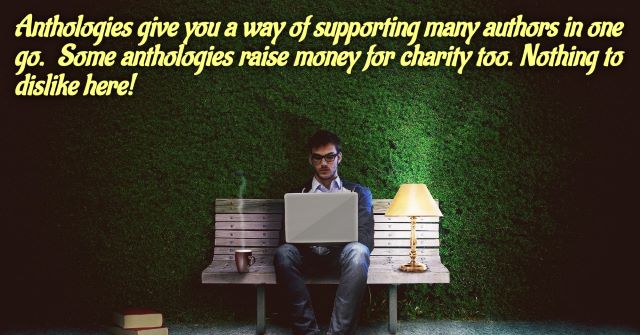
Many anthologies raise money for charity.
Authors do earn royalties from anthologies produced by the small presses (such as the one I am with). Okay, these are split pro-rata, rightly so, but these build up over time and the more anthologies you can get work in the better so don’t overlook that aspect. Also if you are with the Authors’ Licensing and Collecting Society (ALCS), you can add the ISBN of the anthology you are in to your record here. That will lead to more payment for you eventually. To find out more about ALCS do check out their website.
Being published in anthologies is a great way of having something to put on your writing CV when approaching publishers/agents with other work. You can build up a good track record here. As an aside to this, being published in these gives you something to share on your social media, author newsletter, and website. People simply do take you more seriously as a writer if they can see you do have a track record. As another aside, at book events, as well as selling my own books, I can sell anthologies where I have work. They look good on a book table!
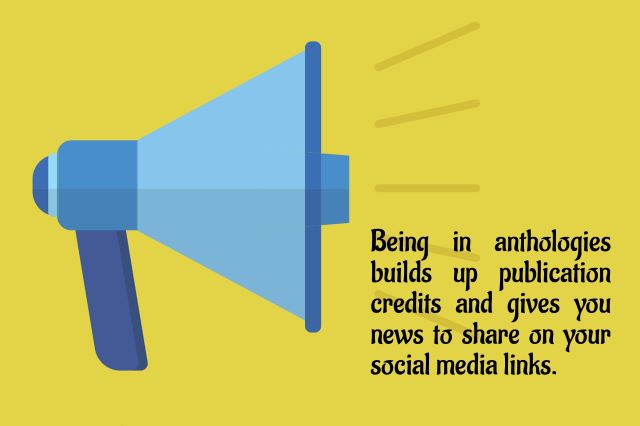
Anthologies make great presents for those you know who love books but you’re not sure what they’ve got already!
Anthologies are superb ways to support the independent presses which, in turn, give voice to more authors. You never know when you might be glad of that. I hadn’t anticipated it myself but am so glad this did come my way. It led on to other things, in my case discovering the wonderful world of flash fiction and going on to have my own books out there.
Anthologies can be a great way to start a writing career and can show others you take your writing seriously.
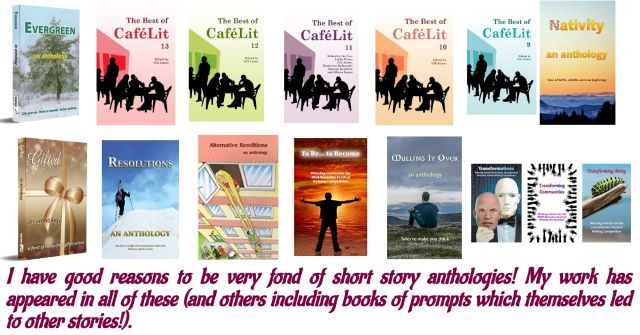
Many anthologies have a set theme and writing for these gives you good practice in writing to a theme set by someone else, meeting deadlines, and that in turn will stand you in good stead for writing competitions, most of which are aimed at short story/flash fiction writers.
When you haven’t a lot of time for reading, you can dip into anthologies. They’re great for this.
Tips For Making The Most of a Set Theme for an Anthology
All of the anthologies I’ve had work in over the years have had a set theme. The Bridge House ones always have a seasonal flavour to them. Previous books from them where I’ve had work in have included Baubles, Gifted, and Evergreen to name three.
But working to set themes is a great writing discipline to practice and not just for competitions as mentioned above. If you go to writing events, you will be set writing exercises so knowing you can write to prompts, which is what a set theme is effectively, is a good confidence booster!
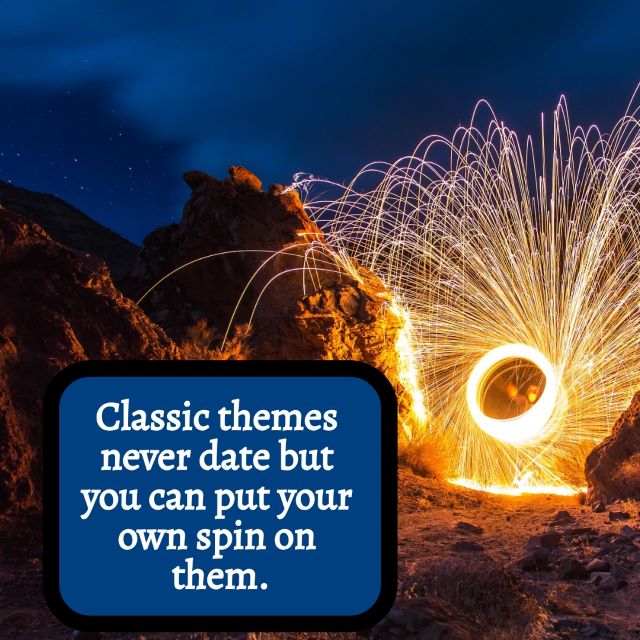
Tips I’ve found useful for making the most of a good theme include:-
Write down all the words and phrases you associate with the theme. Word association is useful for writers. It helps you to see links. Writing the words and phrases down, I’ve found, has sparked further thoughts which did not occur immediately. The more words and/or phrases you can get down the better. The ones further down your list are likely to be those which won’t be the obvious ones.
Incidentally, there is nothing wrong with using an obvious take on a theme but it pays to ask yourself what it is that I can bring to the mix here so my story stands out? Story judges often have seen it all before so if your take on the theme is different but still sticks with the theme, well your story is much more likely to stand out.

Give yourself time for (a) writing down the words and phrases you associate with the theme, if you can have more than one go at this, fabulous as it will help you come up with original ideas; and (b) to pick what you like most and then get a first draft down.
Do study other anthologies brought out by the publisher concerned and check out their website for submission requirements. The first point here means you will get a feel for the kind of work they like and their house style. The second – well, without doing this exactly, your story won’t go anywhere. Practically everyone does get many submissions so they will ignore anything not fitting in here.
Themes do get repeated for the good reason they are timeless. There will always be room for love stories, ghost stories etc, but take the time to ask yourself what would make your story stand out. What is it about your characters which grabs your attention? Do give good thought to what kind of character would best suit the theme. One size doesn’t fit all here.
Conclusion
Short stories are wonderful things. So often when you read them, you cannot imagine a word being taken out or added to the tale without spoiling it a bit. That’s the sign of a well written tale. I use anthologies myself to ensure I read plenty of short work in between reading novels and non-fiction. It means I have a reasonably good “reading diet” which in turn inspires my own writing. Nothing to dislike there!
Happy reading and writing (short and long forms) then!
Related Posts:-
Read interviews with Chandler’s Ford writer Allison Symes: Part 1 and Part 2.
Read blog posts by Allison Symes published on Chandler’s Ford Today.
Never miss out on another blog post. Subscribe here:

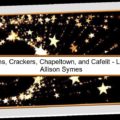



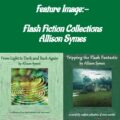
Leave a Reply